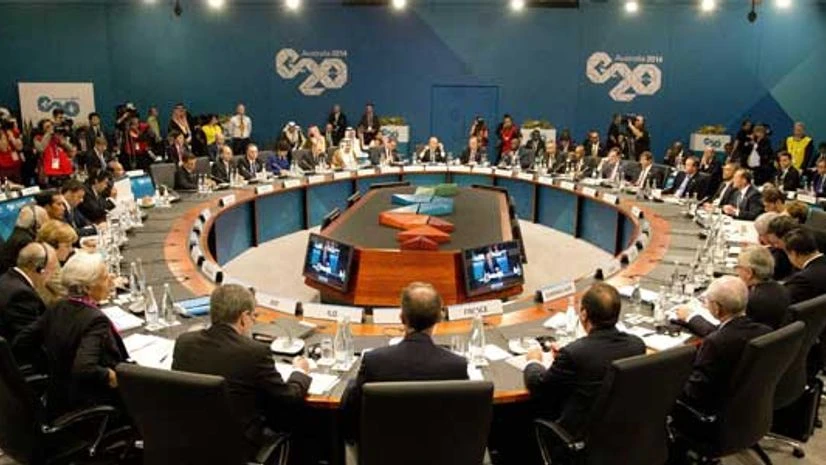Investors worried about the risk of a new global recession are hoping that data over the coming week will show that some momentum remains in the world economy, eight years into its slow recovery from the financial crisis.
The Group of 20 economies were unable to agree on a joint push for new stimulus measures at a meeting which ended on Saturday, turning attention instead to upcoming business surveys from China, Japan, Europe the United States.
Central banks in Europe and Japan may inject a little more stimulus into their economies later in March. But the Federal Reserve and the Bank of England look likely to sit tight for now, meaning hopes for a period of calm in the world's volatile financial markets lie largely with the indicators.
"It seems economic data will have to bear the burden of stabilizing sentiment," economists at Barclays said in a note to clients on Friday.
A first reading of inflation in February for the euro zone on Monday will help shape expectations of how much further below zero the European Central Bank is likely to push its deposit rate the following week.
Euro zone inflation picked up in January but is expected to have fallen back to zero in February, according to a Reuters poll of economists.
More From This Section
If there is also a weakening of the monthly purchasing manager indexes for Germany and other leading euro zone countries, the ECB may consider increasing its bond-buying programme as well as cutting rates on March 10.
"There is a growing chance that the ECB will do more at its March meeting than simply lowering its deposit rate," Ralph Solveen, an economist at Commerzbank, said.
U.S. payrolls figures on Friday may help ease fears about the world's biggest economy, which appeared to stumble soon after the Federal Reserve felt confident enough to hike interest rates for the first time in nearly a decade in December.
Solid U.S. job growth and pay growth are seen as the best antidote to the upheaval in global financial markets which has hurt confidence and even raised questions about whether the United States was heading back into recession.
Markets have turned calmer in recent days, helped by stronger-than-expected U.S. inflation figures. But the impact of plunging share prices has shaken the confidence of many households and businesses in rich countries.
Economists at Citi have cut their forecast for global economic growth this year to 2.5% from 2.7% due to slowing activity in developed economies. They said growth could come in below 2% -- equivalent to a global recession -- because of the chance of weaker growth among emerging economies.
Bank of England Governor Mark Carney said on Friday that the global economy risked becoming "trapped in a low growth, low inflation, low interest rate equilibrium."
Political risks are also on the rise. Businessman Donald Trump could extend his lead as the front-runner to be the Republican contender for the U.S. presidency on Tuesday when voters in 11 U.S. states choose among the candidates.
The idea of Trump in the White House is a worrying one for some investors who balk at his populist, unpredictable style.
Politics is becoming a factor in Britain, too. With a referendum now set for June 23 on its membership of the European Union, sterling has touched seven-year lows against the U.S. dollar. A decision to leave the EU could hurt growth more in Europe as well as Britain, economists say.
Most opinion polls have shown the two campaigns running neck and neck although one published on Friday gave the 'out' campaign a four percentage-point lead. More polls are likely in the coming days.
Economists at SocGen said they saw the possibility of a so-called Brexit as their top risk for the global economy, topping the chance of a severe economic slowdown in China.
"We would classify a UK exit from the EU as a powerful geopolitical shock, a negative shock," Italian Finance Minister Pier Carlo Padoan said at the G20 meetings in Shanghai on Saturday, echoing the concerns of other policymakers.

)
